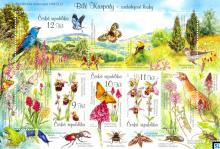Die Insekten stehen am Anfang der Nahrungskette. Wenn sie verschwinden, verschwinden wir auch.
Der Entomologische Verein Krefeld, der seit 1905 Insekten erforscht, hat festgestellt, dass in den letzten 20 Jahren 80% unserer Fluginsekten verschwunden sind: http://80.153.81.79/~publ/mitt-evk-2013-1.pdf . Mit in 2 Malaise-Fallen gefangenen Insekten wurden dieser Verlust in einem Naturschutzgebiet ermittelt. Nicht nur eine industrialisierte Landwirtschaft und die damit verbundene Vernichtung der Lebensräume von Insekten sind dafür ursächlich.










